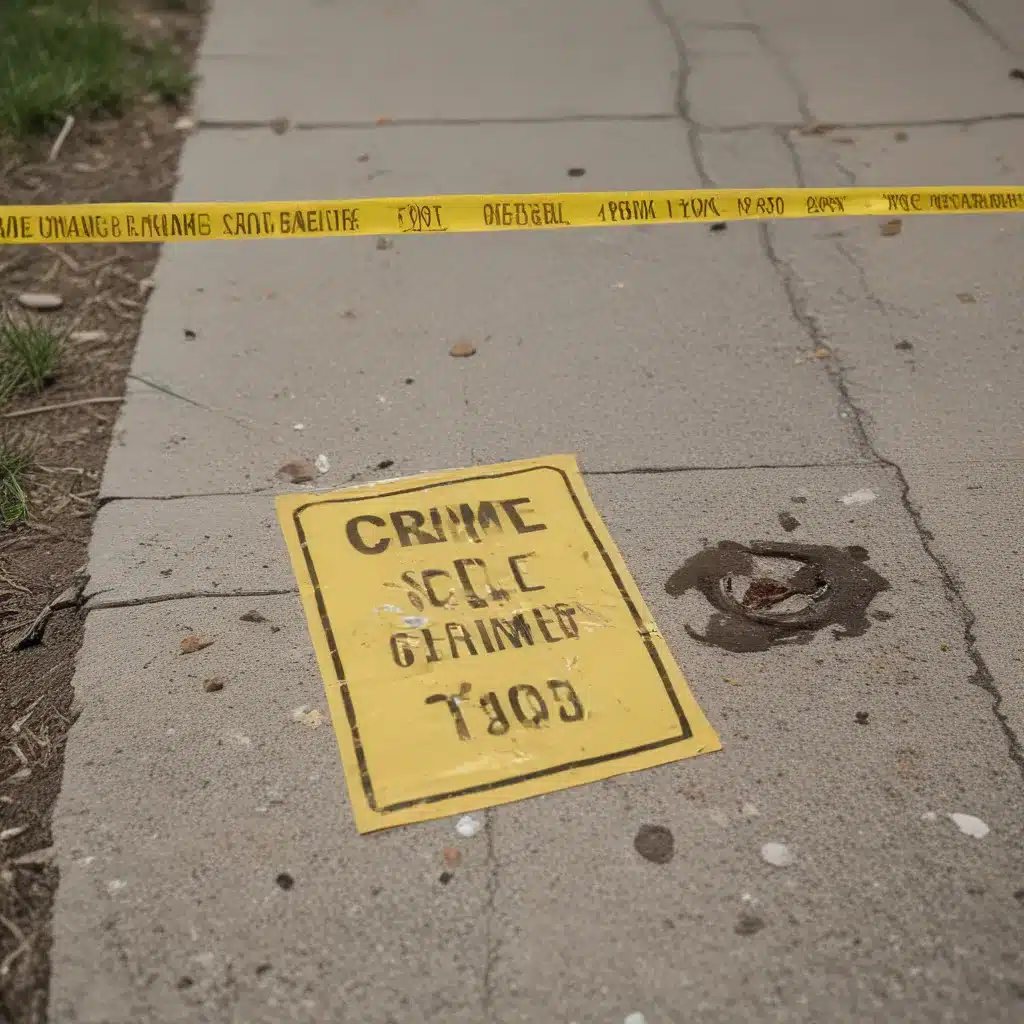Uncovering the Realities of Crime Scene Cleanup
As I stroll through the bustling streets of Nottingham, I can’t help but reflect on the unseen realities that lurk beneath the surface of our vibrant city. While we go about our daily lives, there exists an entire industry dedicated to the delicate and often overlooked task of crime scene cleanup.
Recent estimates suggest that a typical crime scene examination can take anywhere from 8 to 12 hours, with more complex cases potentially stretching on for days. But what happens after the police have finished their meticulous work? That’s where the real challenge begins for the unsung heroes of crime scene cleanup.
The Grim Reality
As I dive deeper into this world, I’m struck by the stark contrast between the public’s perception and the grim realities that cleaning professionals face. It’s easy to imagine crime scene cleanup as a straightforward process, but the truth is far more complex and often harrowing.
Forensic investigations can leave behind a tangled web of biological evidence, from blood spatters to tissue samples, all of which must be meticulously handled and removed. And the emotional toll on the cleanup crew cannot be overstated. Imagine the weight of knowing that you’re tasked with erasing the last vestiges of a tragic event, of a life cut short.
The Cleanup Conundrum
As I delve further into the world of crime scene cleanup, I’m struck by the sheer complexity of the process. It’s not just a matter of mopping up spilled blood and disposing of the evidence. No, the cleanup crew must navigate a minefield of legal and regulatory requirements, all while maintaining the utmost care and discretion.
According to industry experts, the cleanup process can take anywhere from several hours to several days, depending on the scale and severity of the scene. And the work doesn’t end there. The crew must meticulously document their actions, ensuring that every step is accounted for and that the scene is returned to a state of pristine cleanliness.
The Emotional Toll
But it’s not just the physical demands of the job that take a toll on these unsung heroes. The emotional weight of their work is immense. Imagine the burden of knowing that your actions directly impact the healing process of the victim’s loved ones, or the knowledge that a single misstep could ruin a delicate investigation.
As one crime scene veteran explained, “You have to be able to compartmentalize your emotions. It’s the only way to get the job done without letting the gravity of the situation consume you.”
Navigating the Complexities
But despite the challenges, the cleanup crew at Adam Cleaning in Nottingham have developed a meticulous and comprehensive approach to their work. They understand that every step, every decision, must be made with the utmost care and attention to detail.
From the moment they arrive on the scene, the crew works in lockstep with the police, carefully documenting their actions and ensuring that the integrity of the investigation is maintained. They don protective gear, from head-to-toe hazmat suits to specialized cleaning equipment, creating a sterile environment that allows them to work efficiently and safely.
The Art of Restoration
But the true artistry of their work lies in the restoration process. Once the biological evidence has been meticulously removed, the crew must then set about the task of returning the scene to its original state. This means not just cleaning, but also repairing any damage that may have occurred during the investigation.
As one crew member explained, “It’s not just about cleaning up the mess. It’s about restoring the space to a state of normalcy, so that the family can begin to heal and move forward.”
A Delicate Balance
And therein lies the true challenge of crime scene cleanup: striking a delicate balance between the demands of the investigation and the needs of the victim’s loved ones. It’s a task that requires a unique blend of technical expertise, emotional intelligence, and unwavering professionalism.
As I reflect on my time spent with the cleanup crew at Adam Cleaning, I’m struck by the quiet heroism of their work. They are the unsung heroes who step into the darkness, who confront the most harrowing of scenes, all in the pursuit of restoring a sense of normalcy and healing. And for that, I have the utmost respect.







